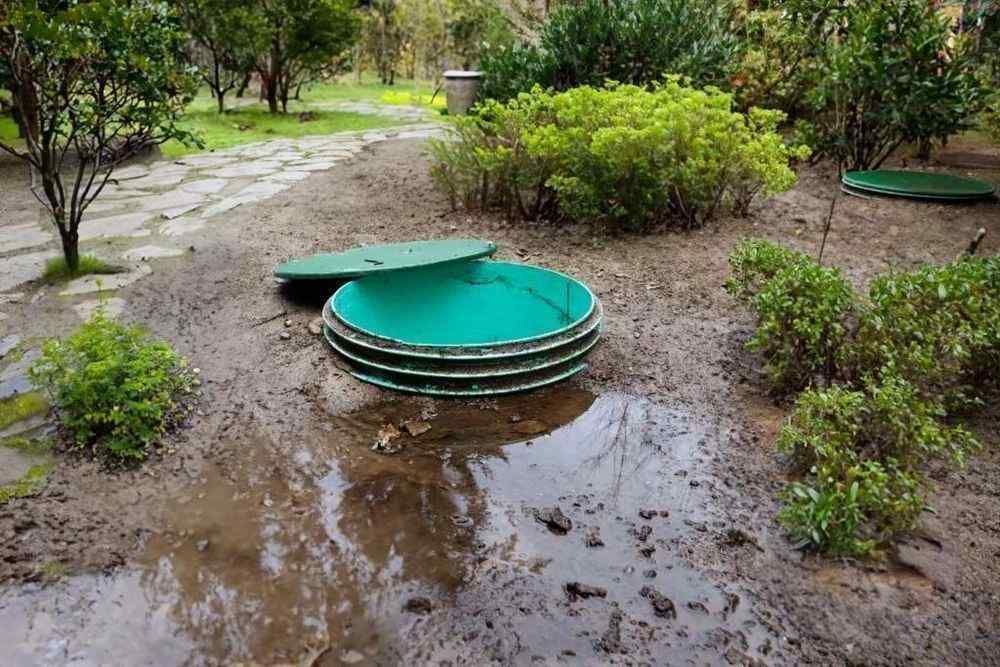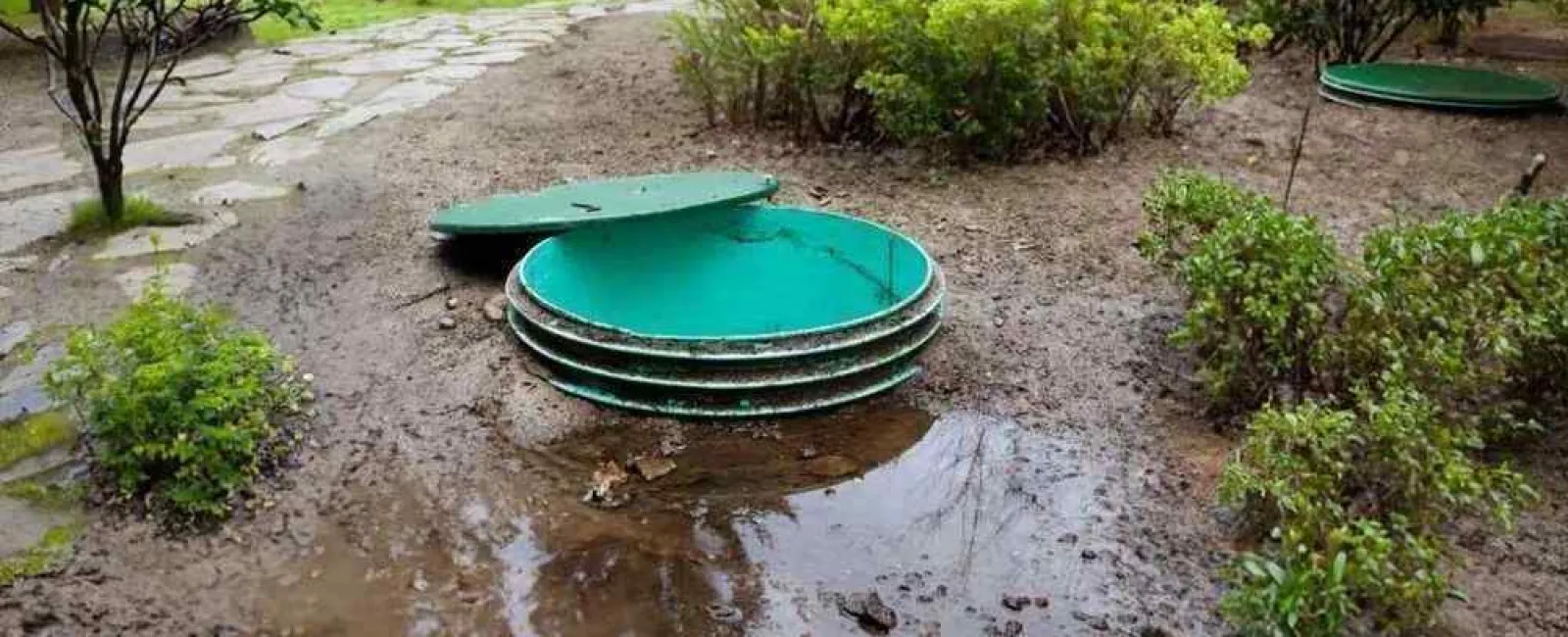A properly functioning septic system is a silent, efficient workhorse for your home's sanitation. But when problems arise, they demand immediate attention to protect your property, your health, and the environment. Recognizing the signs of trouble and knowing what to do can save you from costly emergency repairs. This comprehensive guide will walk you through identifying, troubleshooting, and solving common septic system issues.

Emergency Action Plan: What to Do If Your System is Backing Up Right Now
If you're facing slow drains or a sewage backup into your home, it's a critical situation. Take these steps immediately:
Stop All Water Use: Do not flush toilets, run showers, or use the dishwasher or washing machine. Any water you send down the drain can worsen the backup.
Turn Off Power to the System (If Applicable): If you have a septic pump or alarm system, shut off the dedicated circuit breaker.
Keep People and Pets Away: Sewage contains harmful bacteria and pathogens. Avoid contact and keep children and pets away from any backed-up wastewater or soggy areas in the yard.
Call a Professional Immediately: A sewage backup is not a DIY fix. It indicates a significant failure in your system that requires expert diagnosis and repair.
Identifying the Problem: Signs, Causes, and Solutions
Most septic issues fall into a few main categories. Here's how to identify what might be wrong with your system.
1. Clogged Pipes and Slow Drains
Slow drains are often the first warning sign of a septic problem.
Signs: Drains in sinks and bathtubs take a long time to clear, you hear gurgling noises from the plumbing, or toilets flush sluggishly.
Potential Causes:
A blockage in the plumbing line between your house and the septic tank.
The septic tank's inlet or outlet baffle is clogged with solids.
The septic tank is full and needs to be pumped.
What You Can Do: Using a plunger may clear a simple clog in a single drain. However, if multiple fixtures are slow, the problem lies deeper in the system.
Professional Solution: A septic technician can pump the tank to remove excess solids and inspect the baffles for blockages.
2. Drain Field Failure
The drain field (or leach field) is where treated wastewater is released back into the soil. Its failure is a serious issue.
Signs: You notice standing water, soggy patches of soil, or unusually bright green grass over the drain field area. You may also smell sewage odors outdoors.
Potential Causes:
Hydraulic Overload: Using too much water in a short period can flood the drain field, preventing it from absorbing wastewater effectively.
Biomat Clogging: Over time, a layer of bacteria called a "biomat" forms in the soil. If it becomes too thick, it can prevent liquid from passing through, causing backups.
Soil Compaction: Driving vehicles or placing heavy objects over the drain field can compact the soil and crush pipes.
What You Can Do: Immediately reduce household water usage. Ensure gutters and downspouts direct rainwater away from the drain field.
Professional Solution: A professional must assess the drain field's condition. Solutions can range from resting the field to a complete replacement, which is a major project.
3. Tree Root Intrusion
Tree roots are a common but hidden enemy of septic systems.
Signs: Signs are often identical to clogs or drain field failure, as roots can cause both. Slow drains and gurgling pipes are common.
Potential Causes: Roots naturally seek out the moisture and nutrients inside septic pipes and tanks. They can enter through tiny cracks or loose joints, eventually blocking or breaking the pipes.
What You Can Do: Avoid planting trees or large shrubs near your septic tank and drain field.
Professional Solution: Experts use specialized tools to cut roots out of the lines and may use cameras to inspect for pipe damage. Severely damaged pipes will need to be replaced.
4. Septic Tank Issues (Full, Leaking, or Collapsed)
The tank itself can be the source of the problem.
Signs: Foul odors near the septic tank, pooling water, or a sudden dip in the ground over the tank are all red flags. A sewage backup is the most extreme sign.
Potential Causes:
Full Tank: Lack of regular maintenance is the most common cause. Tanks should be pumped every 3-5 years.
Leaking Tank: Ground movement or age can cause cracks in the tank, allowing wastewater to leak out and contaminate groundwater.
Collapsed Baffle: An internal component called a baffle can break, allowing solid waste to flow into and clog the drain field.
What You Can Do: If you suspect a tank issue, the only safe step is to call a professional. Do not open the septic tank lid yourself; it is heavy and the gasses inside can be toxic.
Professional Solution: A technician will inspect the tank's interior, pump it if necessary, and diagnose any structural failures like cracks or broken baffles.
Proactive Septic System Maintenance: The Best Way to Avoid Problems
The most effective troubleshooting is preventing problems before they start.
Pump Your Tank Regularly: This is the single most important maintenance task. Most homes require pumping every 3 to 5 years.
Conserve Water: Reduce the load on your system by fixing leaks, installing low-flow fixtures, and spreading out laundry loads.
Protect Your Drain Field: Never drive or build on top of your drain field. Keep deep-rooted trees away from the area.
Mind What You Flush: Your septic system is not a trash can. Only flush human waste and septic-safe toilet paper. Avoid flushing wipes (even "flushable" ones), feminine hygiene products, grease, oil, and harsh chemicals.
When you're faced with a septic puzzle, knowing these signs and causes can help you take swift, appropriate action. For expert diagnosis, repair, and maintenance, trust the professionals at Scorpion Septic to keep your system running smoothly. Don't wait for a small issue to become a major disaster—contact us today!

